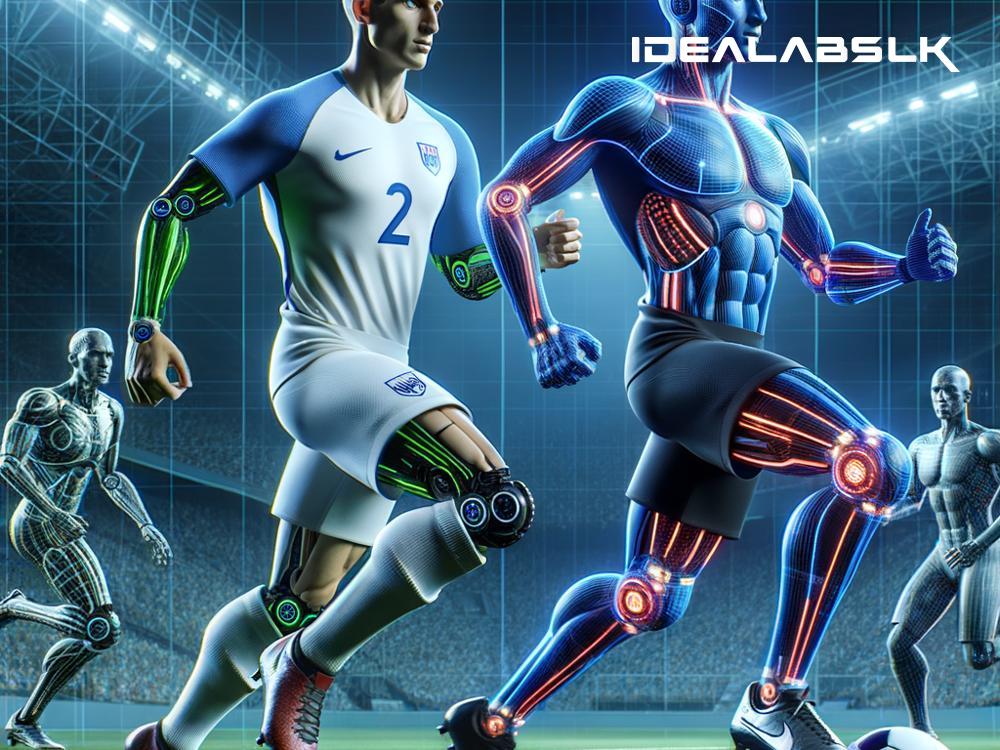Title: The Future of Gaming in 2025: How AI is Revolutionizing Sports Games with Lifelike Player Movements and Strategies
The realm of video games, particularly sports simulations, is on the brink of a colossal transformation, thanks to advancements in artificial intelligence (AI). As we look ahead to 2025, it’s clear that AI isn’t just changing the game—it's elevating it to new heights. At the heart of this revolution are two core enhancements: ultra-realistic player movements and AI-driven strategy, creating an immersive gameplay experience that blurs the lines between the virtual and real worlds.
Lifelike Player Movements: Beyond Animation
Until recently, the movements of characters in sports games were primarily governed by pre-defined animations. This approach, while effective to a degree, often fell short of capturing the fluidity and unpredictability of real-life athlete movements. Enter advanced AI technologies, like machine learning and procedural animation, which are set to change the landscape in 2025.
These technologies enable game characters to move in more natural and diverse ways, mimicking the infinite subtleties of human motion. Imagine a soccer game where AI controls the athletes: a striker might adjust their body posture in numerous ways before taking a shot, considering the ball's position, their balance, and even the pressure from opposing defenders—all in real time. This level of detail enhances the realism of sports games exponentially, making every match unique and thrilling.
AI Strategy: A Game of Minds
The second breakthrough lies in AI-driven in-game strategy, promising a level of tactical depth hitherto unseen in sports simulations. Traditional games often rely on predictable patterns or a set of predefined strategies, leading to a gameplay experience that can feel repetitive or overly simplistic. However, by 2025, AI capabilities will have evolved to a point where virtual athletes and teams can learn and adapt just like their human counterparts.
This means that, for instance, in a basketball game, the AI can dynamically adjust its team's playstyle based on the current state of the match. If you're consistently scoring three-pointers, don't be surprised to see the AI enhance its perimeter defense to counteract your strategy. These adjustments aren’t random—they’re the result of the AI analyzing thousands of game situations in milliseconds, learning from successful plays, and applying that knowledge in real time.
Training Virtual Athletes
What’s even more fascinating is the potential for AI to simulate years of training. Virtual athletes in sports games will be able to develop their skills based on a 'training regime' decided by the AI, leading to an ever-evolving gameplay experience. Skills can improve, strategies can shift, and no two games will ever play out the same way.
Player Engagement and Strategy
For players, this evolution in sports games means a richer, more engaging gameplay experience. Gamers will need to constantly adapt their strategies and cannot rely on exploiting predictable AI behavior. This new dynamic promises to keep sports games fresh and exciting, enhancing replay value.
Future Challenges and Considerations
While the prospects are exciting, integrating such advanced AI into sports games isn’t without its challenges. High computational power is required to support these sophisticated AI systems, potentially raising the cost of gaming hardware. Moreover, game developers must find a balance between making the AI challenging and keeping the game accessible and enjoyable for players of all skill levels.
Despite these hurdles, the evolution of AI in sports games shows no sign of slowing down. Developers are continuously pushing the boundaries of what’s possible, driven by the desire to create the most authentic and enthralling sports simulations imaginable.
Conclusion
As we peer into the future of sports games in 2025, it's evident that AI is set to redefine what's possible, offering players an unparalleled level of realism and strategic depth. Ultra-realistic player movements and AI-driven strategies will not only enhance the visual and tactical aspects of sports games but also deepen the emotional and cognitive engagement of players. This fusion of advanced technology and entertainment promises to usher in a new era for sports gaming, one where the virtual and real worlds are indistinguishably intertwined, fulfilling the dreams of gamers seeking the ultimate sports experience. As we stand on the cusp of this exciting future, one thing is certain: the game is about to change, in ways we're only beginning to imagine.

